Faced with Growing Demand for Services, Philippine Nuclear Research Institute to Upgrade Irradiation Facility
- Details
From the International Atomic Energy Agency
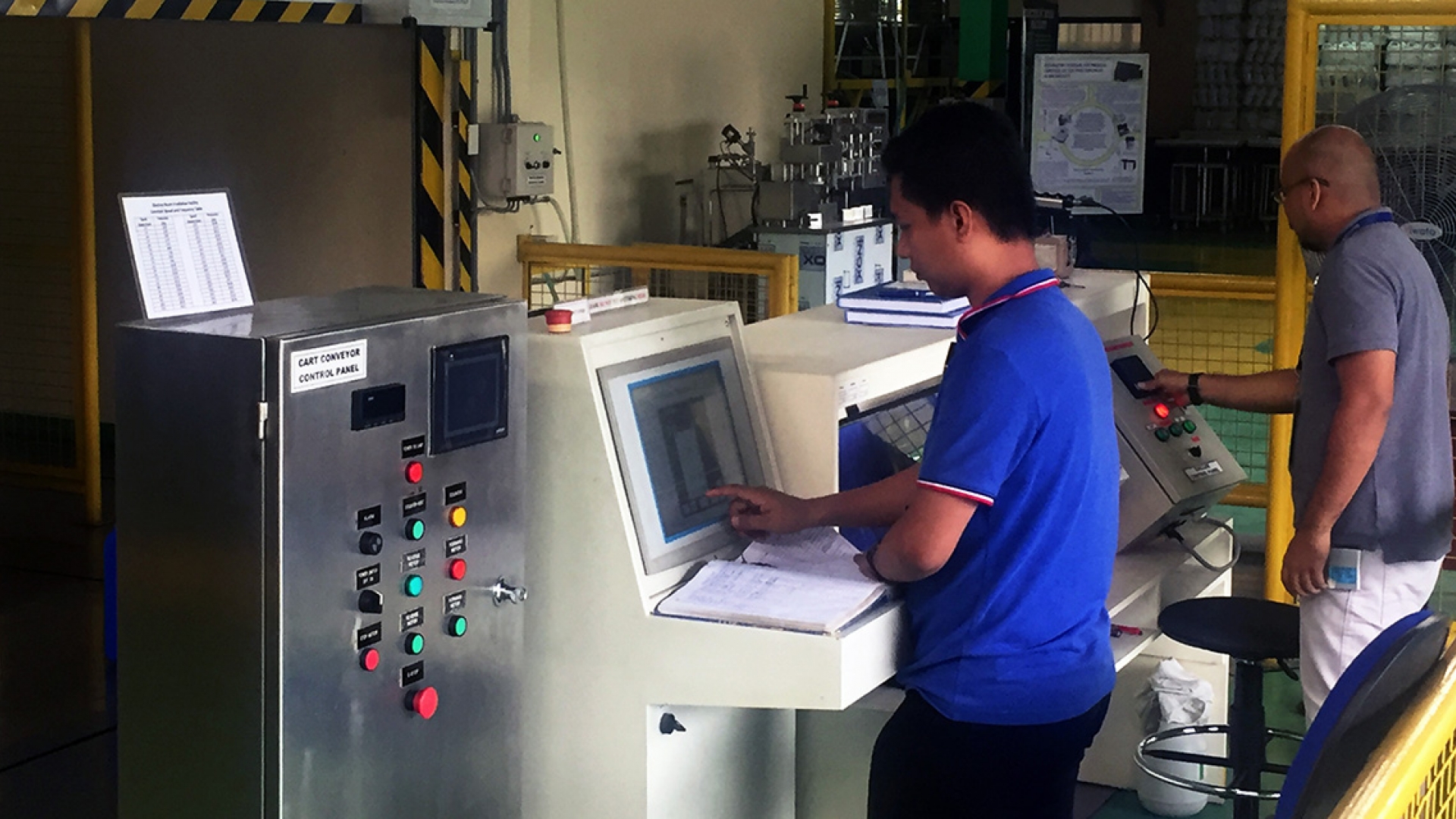
Demand is booming for services of the Philippines only gamma irradiator. Located at the Philippines Nuclear Research Institute in Quezon City, the irradiator is mostly used for microbiological decontamination of spices, herbs and dried vegetables and for the sterilization of medical devices and packaging materials. Its ongoing upgrade and capacity enlargement are supported by the IAEA. (Photo: M. Gaspar/IAEA)
Faced with Growing Demand for Services, Philippine Nuclear Research Institute to Upgrade Irradiation Facility
Miklos Gaspar, IAEA Office of Public Information and Communication
Quezon City, Philippines – Much of the Philippines’ spice and herbal products industry relies on the country’s only gamma irradiator for microbiological decontamination, but the facility at the Philippine Nuclear Research Institute (PNRI) can no longer cope with the increased demand. PNRI is working to upgrade the facility, with the help of the IAEA, and is lending support to the private sector and the government’s National Development Company to establish a commercial facility in the near future.
PNRI Rolls Out nSTEp+ for K-12 Teachers and Students in the Regions
- Details

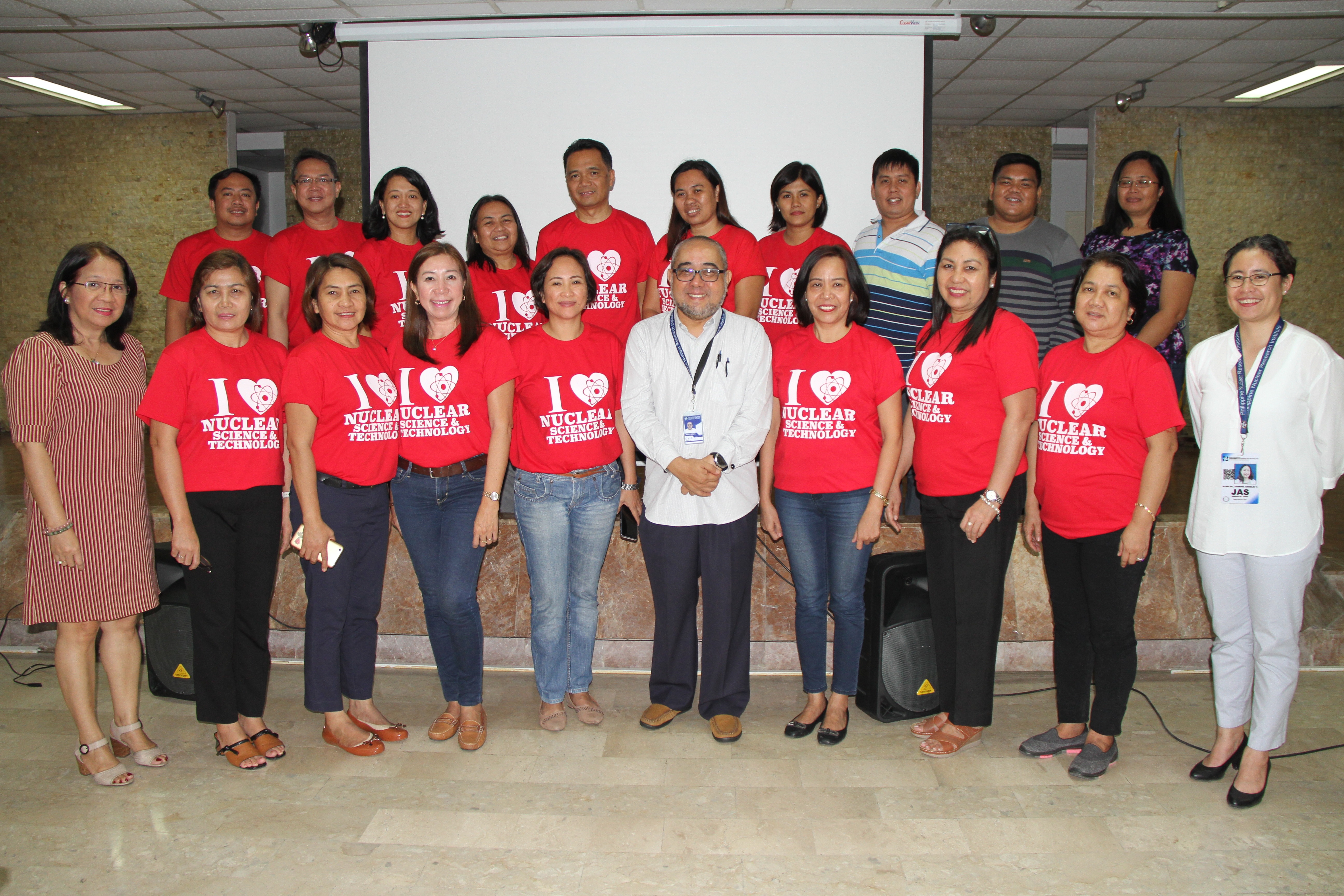
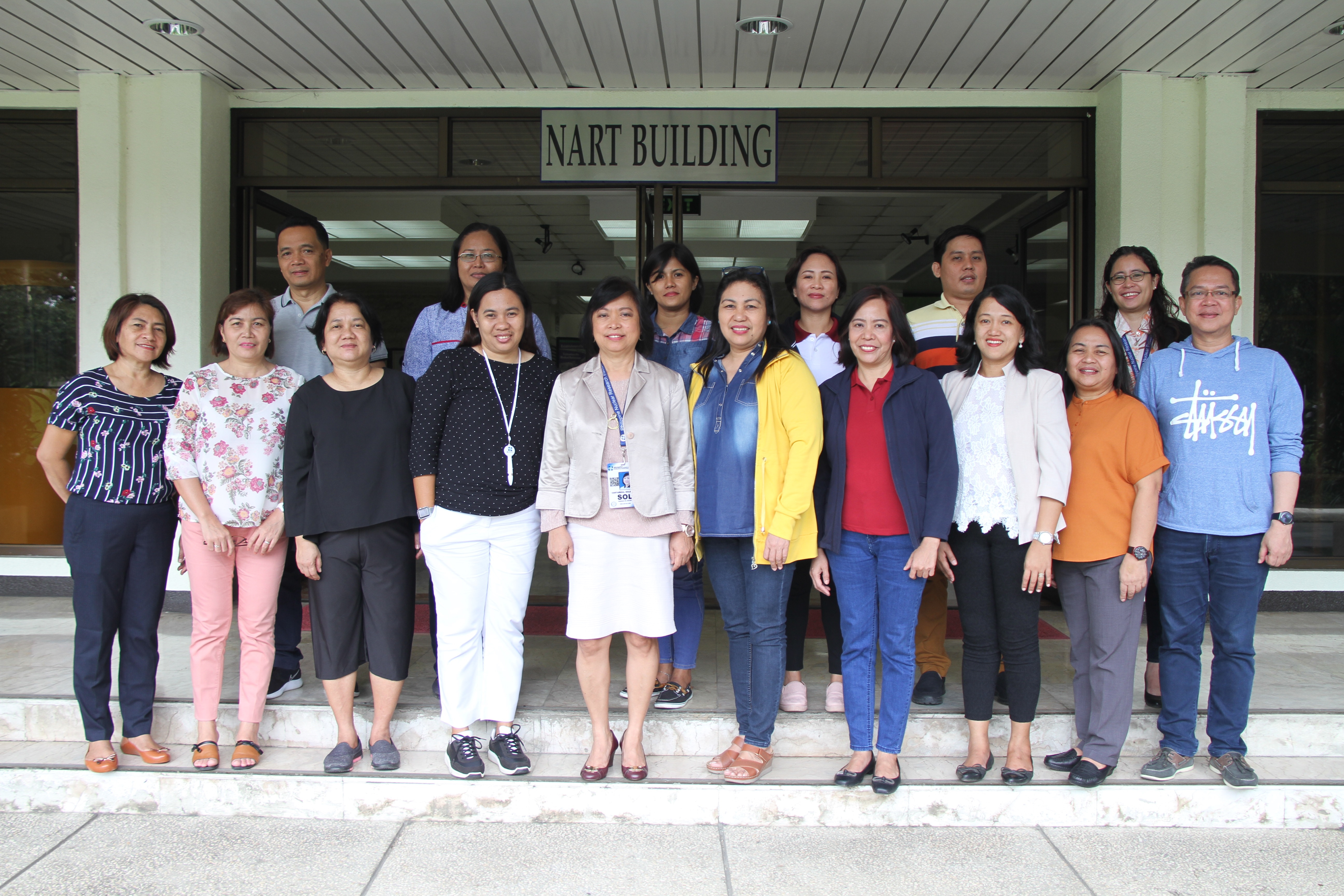
Science teachers, Supervisors and Campus Directors from various regions representing the Department of Education and the Philippine Science High School System met with DOST-PNRI officials during the roll out of the Nuclear Science and Technology Education Program (NSTEP) in selected pilot schools in Luzon, Visayas and Mindanao for K-12 students on August 15-17, 2018. The NSTEP aims to support, strengthen and sustain nuclear science and technology education in the Philippines
PNRI Rolls Out nSTEp+ for K-12 Teachers and Students in the Regions
Expanding the reach of nuclear science and technology to high school classrooms in various provinces, the Department of Science and Technology – Philippine Nuclear Research Institute (DOST-PNRI) has recently rolled out its Nuclear Science and Technology Education Program (nSTEp+) to its regional counterparts from the Department of Education (DepEd) and the Philippine Science High School (PSHS) System.
During the nSTEp+ Forum from August 15-17, 2018, participating science teachers, supervisors and campus directors from DepEd and PSHS agreed to become part of the vibrant network of science educators who will promote the peaceful uses and applications of nuclear science and technology through the implementation of various curricular and extra curricular activities incorporating nuclear and radiation concepts in various subjects.
PSHS is already set to include nuclear science as an elective subject for their Grade 10 students as well as in their existing student activities like science and research fairs, science clubs, and a column in their school paper.
Meanwhile, DepEd will begin conducting awareness campaigns about the program and extracurricular activities while waiting for the guidelines for the integration of nuclear science concepts in their classes. The integration was drawn from the Memorandum of Understanding between DepEd and PNRI signed last February 2018.
The coverage of the nSTEp+ includes selected areas and schools in the Philippines, namely Region I (Ilocos), Region III (Central Luzon), Region 4-A (CALABARZON), Region VI (Central Visayas), Region VII (Western Visayas), Region X (North Mindanao), Region XI (Davao), Region XII (SOCCSKSARGEN) and the Cordillera Administrative Region (CAR).
nSTEp+ draws from the rich experience gained from technical cooperation projects with the International Atomic Energy Agency (IAEA) starting with its pilot implementation in the Philippines since 2015. Through an inter-agency partnership between PNRI, DepEd, PSHS and the DOST-Science Education Institute (DOST-SEI), the projects involved the successful use of the IAEA-developed compendium of resources in teaching nuclear and radiation concepts in an outreach program for secondary schools in Asia and the Pacific.
Through this continuing IAEA projects, teachers and supervisors from DepEd and PSHS were sent abroad to train and observe activities in secondary schools from other countries as they integrate nuclear science in their respective curriculums. The trainees shared their experiences and demonstrated some of the classroom activities they learned from the fellowship during the nSTEp+ forum. These activities include the cloud chamber experiments, radiation monitoring with survey meters and interactive lessons on radiation safety.
At the end of the forum, the participants had the opportunity to interact with researchers and scientists of PNRI and other nuclear and radiation facilities, namely the Bataan Nuclear Power Plant, the medical cyclotron center at the National Kidney and Transplant Institute and the radiopharmaceutical lab of Assurance Controls Technologies Co. Inc.
Through an inter-agency partnership between PNRI, DepEd, PSHS and SEI, nSTEp+ aims to expand its reach to all the regions in the Philippines, inspiring the Filipino youth through nuclear science and technology.
Water in Philippine City Safe to Drink, Study Using Isotopic Techniques Finds
- Details
From the International Atomic Energy Agency
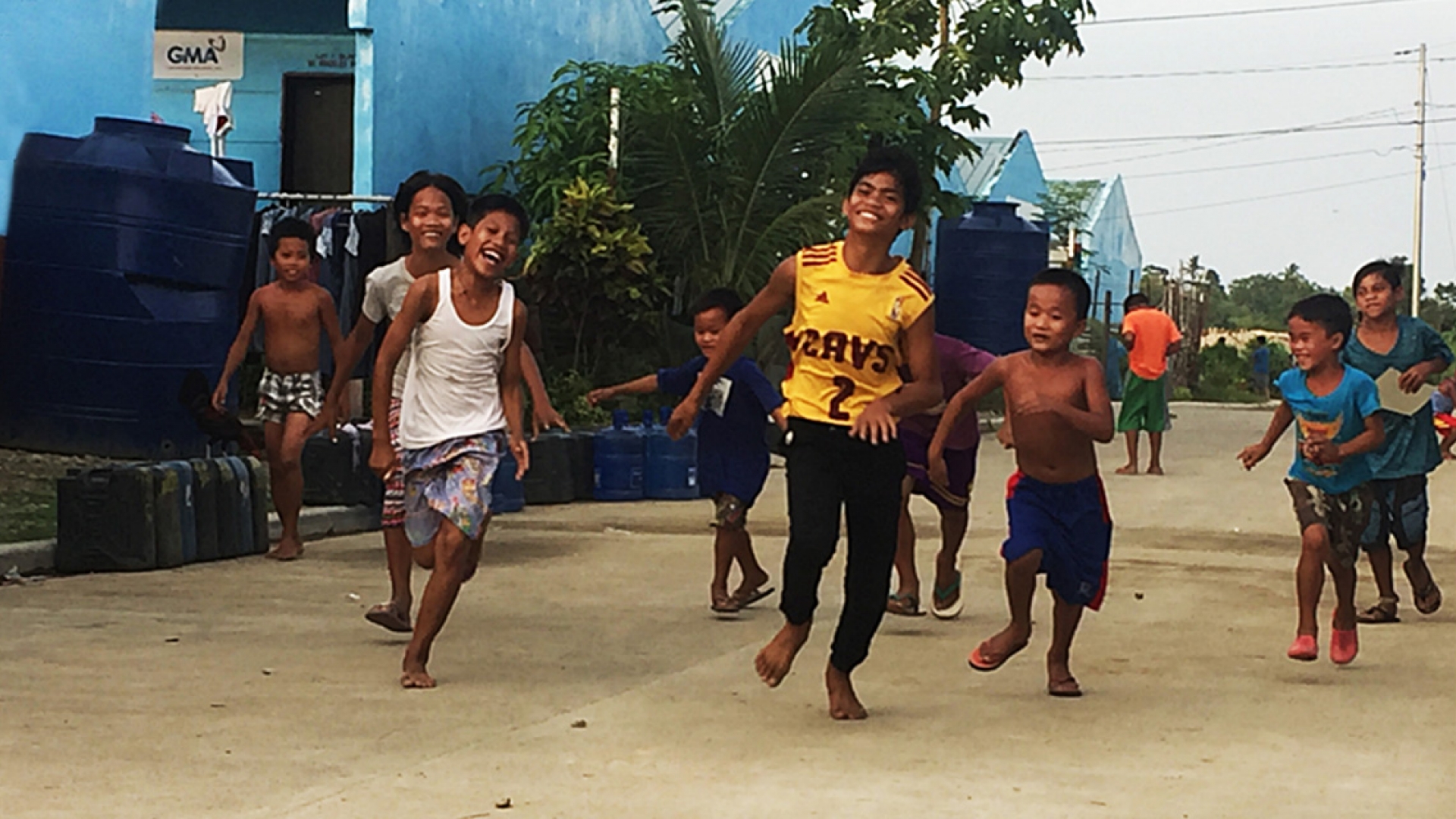
Isotopic techniques have confirmed that the city water in the water tanks behind these boys, and on many streets in new neighbourhoods in Tacloban, is safe to drink. (Photo: M. Gaspar/IAEA)
Water in Philippine City Safe to Drink, Study Using Isotopic Techniques Finds
Miklos Gaspar, IAEA Office of Public Information and Communication
Tacloban, Philippines – The drinking water of this city of 250,000 is safe, is getting regularly recharged and is not under threat by the sea. Sounds simple? This conclusion took years of research and the analysis of thousands of water samples to establish, and required the use of isotopic techniques by researchers from the Philippine Nuclear Research Institute (PNRI), with support from the IAEA and the Food and Agriculture Organization of the United Nations (FAO).
When a storm surge caused by Typhoon Haiyan, the strongest tropical storm in the world, devastated much of this city and killed thousands in 2013, local authorities faced the daunting task of reconstruction, including moving people away from the most flood-prone areas. But could the waves that swept away buildings and people have reached the city’s water reservoir?
There was a danger that the storm surge could have contaminated the aquifer – an underground layer of permeable rock containing groundwater – the city’s major water source. Salt and other flood-borne contaminants, including organic matter from animal and human corpses, could have rendered the water unfit for consumption. PRNI turned to the IAEA technical cooperation programme for assistance in the use of isotopic techniques to characterize the aquifer.
Read more at https://www.iaea.org/newscenter/news/water-in-philippine-city-safe-to-drink-study-using-isotopic-techniques-finds
PNRI Features Nuclear Applications at the 2018 National Science and Technology Week
- Details
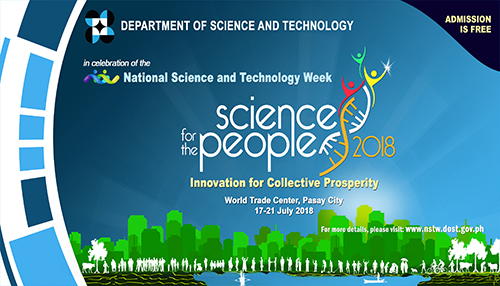
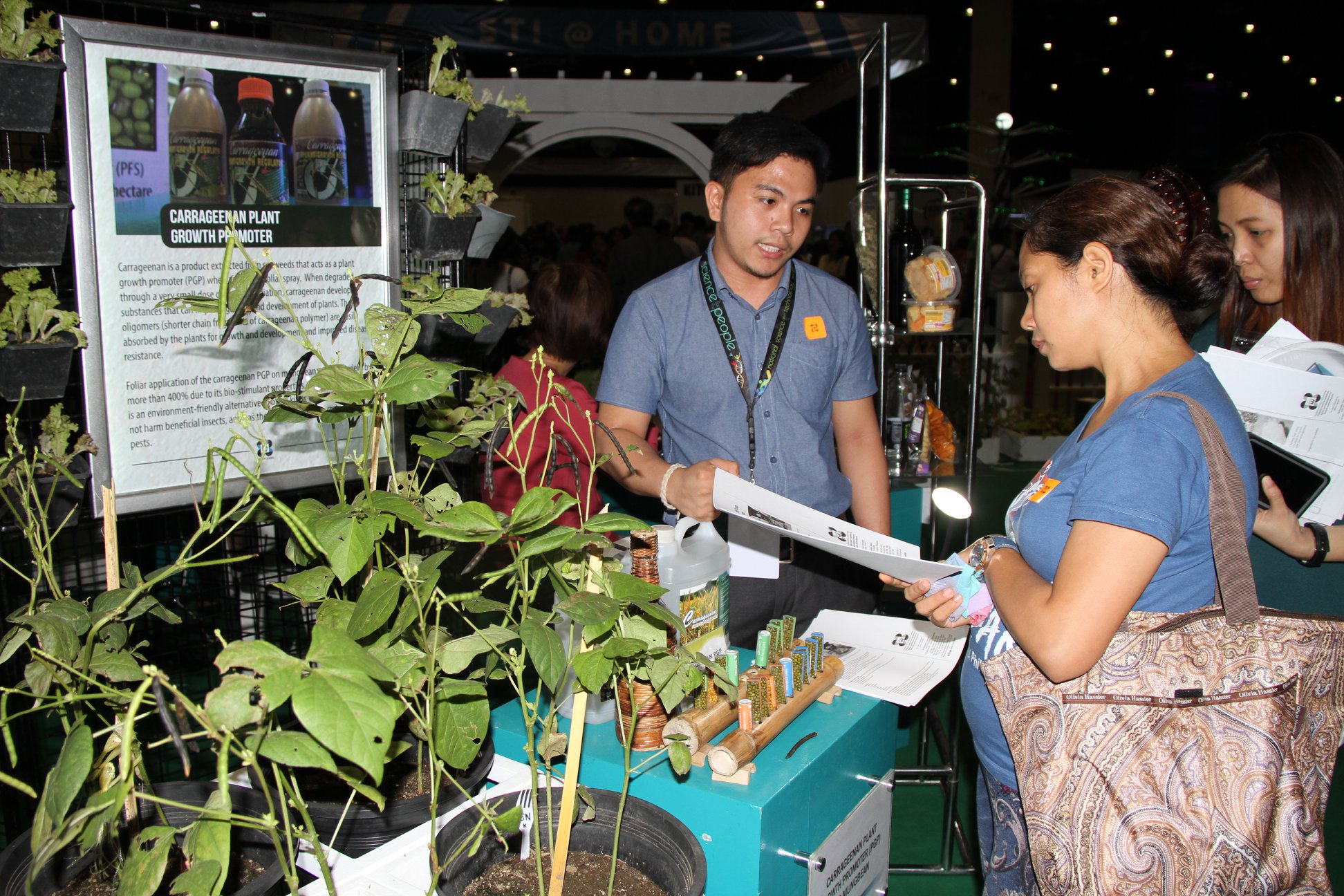
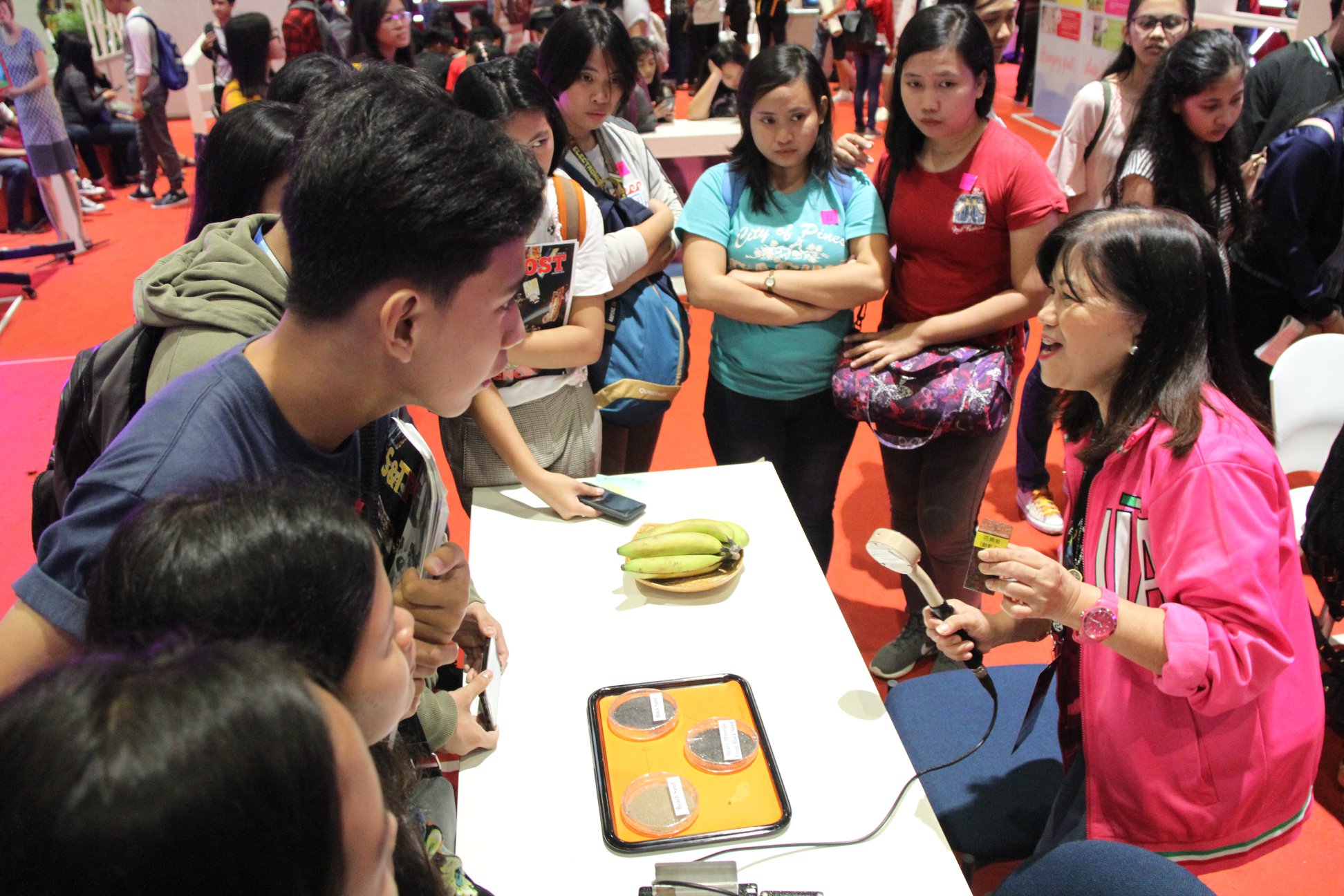
PNRI Features Nuclear Applications at the 2018 National Science and Technology Week
Featuring the latest innovations in nuclear science and technology through its applications in food, agriculture and radiation safety, the Department of Science and Technology – Philippine Nuclear Research Institute (DOST-PNRI) participates in the celebration of the National Science and Technology Week (NSTW) on July 17 to 21 at the World Trade Center in Pasay City.
With the theme, "Science for the People: Innovation for Collective Prosperity", the 2018 NSTW will feature interactive exhibits divided in four clusters depicting Science, Technology and Innovation (STI) at Home, School, Workplace and Marketplace.
For this year’s celebration, PNRI exhibits several projects and technologies in STI at Home, such as monitoring of radon, a radioactive gas, improved ornamentals through mutation breeding, nuclear analytical techniques for analysis of synthetic acetic acid adulteration in vinegar, and irradiation of burger patties for food safety.
For STI in the Workplace – Farmville, PNRI features its award-winning Carrageenan Plant Growth Promoter as plant food supplement for mungbean that will improve the yield and quality of our food crops. Finally, PNRI also participates in STI in School with two learning stations on radiation detection and cloud chamber experiments, which will be more engaging to students in demystifying nuclear reactions.
Held annually every third week of July, the NSTW aims to recognize the contribution of science and technology in the development of the country and garner support from the public and private institutions for its sustainable development, according to the DOST.
Find out more about PNRI exhibits during the 2018 NSTW at our PNRI Facebook Page:
https://www.facebook.com/pg/PNRIDOST/photos/?tab=album&album_id=660199864325422












































